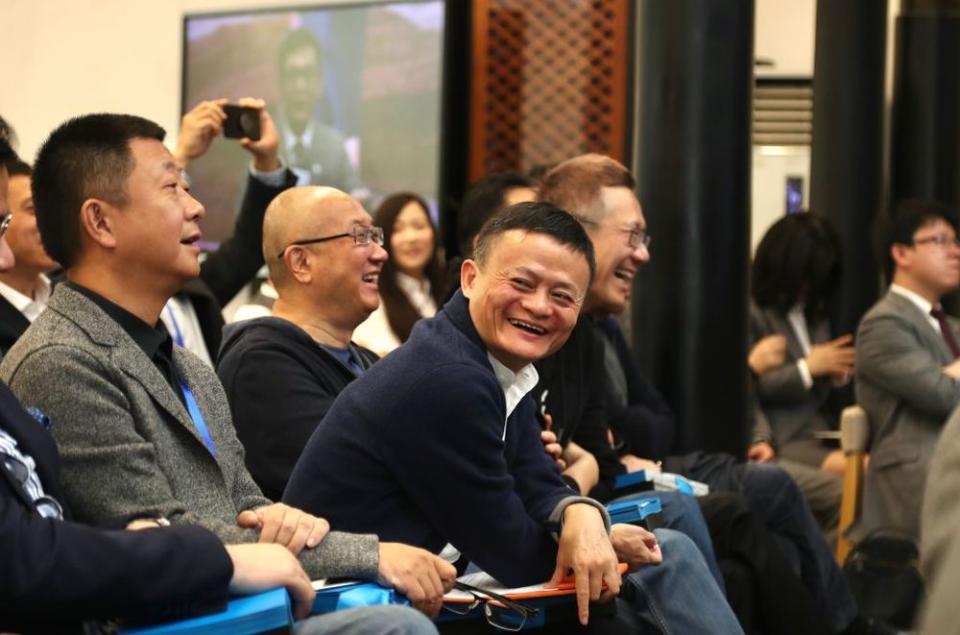China's '996' Overwork Culture Fueled Its Tech Engine. Why Workers Are Finally Burning Out
China’s tech sector, already shivering through a capital winter, could be entering a new winter of discontent, as tech developers protest long working hours.
Last month on GitHub, the Microsoft-owned forum where tech developers share software codes, a post from an anonymous Chinese user garnered attention beyond the site’s typical userbase. Called 996.ICU, the post was a protest against the extreme working hours developers in China’s tech sector endure—slogging away from 9 a.m. to 9 p.m., 6 days a week.
“If you work 996, you’ll be in the ICU sick,” the post, which has been saved over 230,000 times, explains. Billing itself as a legal rather than a political movement, the GitHub post details how 996 culture contravenes China’s labor laws, which mandate a work week of 44 hours with possible overtime capped at 36 hours a month. The author signs off with the tagline, “Developers’ lives matter.”
China’s history of overwork
It’s a sentiment that could resonate even in Silicon Valley, where for decades tech elites have made overwork a point of pride. But that culture reached fever pitch in China’s booming tech sector. In his book A.I. Superpowers, former Google China president Kai-fu Lee likens China’s tech executives to gladiators in a coliseum and writes that “compared to China’s start up scene, [Silicon Valley’s] companies look lethargic and its engineers lazy.”

China’s early tech entrepreneurs were driven, Lee writes, partly by an acute awareness of being just one generation removed from the extreme poverty that racked China before market reforms kickstarted the economy in the late 1970s. For most of the decades since, China’s gross domestic product has grown at an average 10% a year. But in 2017 the economy entered what policy makers have dubbed a “new normal” of slower growth, with annual GDP increases now knocking around 7.6%.
“The reason why the 996 protests arose now is because China’s Internet industry, which had been continuously growing at very high speed for the past decade, [is] feeling the stress of the economy slowing down,” says Li Chen, a social sciences professor at Chinese University Hong Kong.
Tech growth comes back down to Earth
The weakening economy has spooked investors and rattled China’s tech scene. According to the Chinese Academy of Science and Technology, funding from venture capitalists and private equity firms dropped 87% in the first quarter over the same period last year.
A number of Chinese tech firms are responding to the downward pressure by downsizing staff. Ride hailing giant Didi Chuxing reportedly is mulling a 15% cut in employee numbers while Tencent, the company behind China’s ubiquitous messaging service WeChat, is targeting a 10% reduction of management staff. This month reports claimed JD.com will lay off 8% of its staff, approximately 12,000 workers.
Nevertheless, some of China’s biggest tech executives are relentless in their championing of overwork.
‘996’ gets CEO support
Richard Liu, founder and CEO of JD.com, came out in favor of the 996 culture after the protest on GitHub had attracted mainstream attention. Liu said that those who refuse to work 996 are “not my brothers.” Jack Ma, founder and chairman of Alibaba, has likewise advocated for long working hours, claiming that working 996 is “a blessing.”
Web browsers operated by tech companies called out by the 996.ICU post for implementing 996 work cultures are also blocking access to the GitHub post, sparking fears that the entire movement is at risk of being censored. At this stage, that seems unlikely, since removing the GitHub post would require direct intervention from Microsoft—something Microsoft employees are currently petitioning the company not to do.
However, there’s no indication yet that the government intends to lean on Microsoft to censor the post. In fact, multiple state-owned media have lambasted both 996 culture and its defendants. The People’s Daily, a newspaper many considered the Party’s mouthpiece, even called the legitimacy of a 996 working culture “clearly questionable” and said it should be reviewed.
Whether that unofficial support manifests itself as government policy remains to be seen. Navigating a road between economic growth and worker’s rights has always been a struggle for the Chinese government and this white-collar protest poses a new and challenging obstacle.

